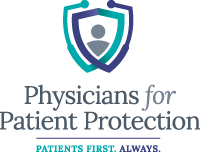- Joined
- Jul 19, 2013
- Messages
- 218
- Reaction score
- 336
It's out in print, the upcoming issue Feb 13th, there is an article in the perspective section written by folks with backgrounds in public health/policy and an RN (not 1 physician on authorship) arguing for expansion of scope of practice across the spectrum of health care, e.g. psychiatric pharmacist doing medication management services in areas underserved by psychiatrists, dental therapists providing routine preventive and restorative oral health care services like preparation and filling cavities. While they did not outright advocate for increased scope of practice for midlevels in the primary care setting, the piece seems to be setting the stage for a push for expanded scope of practice of allied health professions into fields where there is practical experience of sorts without any real formal education and training in actual clinical care.
Anecdotally, where I am training (unopposed family medicine in the midwest) we have a PA program that the local hospital system invests in far more heavily than the residents in our residency program. PAs on the specialty services get better training- dibs on procedures and cases, specialists make time out of their schedule to lecture for their didactics (getting a specialist to work with our program is like pulling teeth) and so on.
In my recent job search I have found that a majority of hospital systems are making a strong push for "APC or APP" supervision as part of standard contracts.
I know there are plenty of threads on "zomg midlevel takeover" and I'm not trying to re-create that hysteria, but based on my admittedly limited anecdotal experience it really does appear that the minimum standard of skill/knowledge in medical practice that is considered acceptable by social/political opinion is precipitously dropping (or the marketing for "equivalent outcomes" for midlevels in primary care and other "non acute" fields seems to be picking up anyway). Is this also the experience of other new grads ? For those of you who have been in the game for a while, do you see this as a passing trend? What does this mean for the new grad in FM in the long term, how do we distinguish ourselves from "advanced practice providers" who "do the same thing" as a specialty short of losing our identity as generalists by specializing (I mean beside providing superior primary care, which can subjectively be un/under appreciated when the marketing for APPs is strong enough in an area)?
Of note, the market for FM seems to be great, so I'm not so much worried about being able to get a job as much as seeing, at least on the surface, the specialty of fm being marketed as essentially obsolete.
Anecdotally, where I am training (unopposed family medicine in the midwest) we have a PA program that the local hospital system invests in far more heavily than the residents in our residency program. PAs on the specialty services get better training- dibs on procedures and cases, specialists make time out of their schedule to lecture for their didactics (getting a specialist to work with our program is like pulling teeth) and so on.
In my recent job search I have found that a majority of hospital systems are making a strong push for "APC or APP" supervision as part of standard contracts.
I know there are plenty of threads on "zomg midlevel takeover" and I'm not trying to re-create that hysteria, but based on my admittedly limited anecdotal experience it really does appear that the minimum standard of skill/knowledge in medical practice that is considered acceptable by social/political opinion is precipitously dropping (or the marketing for "equivalent outcomes" for midlevels in primary care and other "non acute" fields seems to be picking up anyway). Is this also the experience of other new grads ? For those of you who have been in the game for a while, do you see this as a passing trend? What does this mean for the new grad in FM in the long term, how do we distinguish ourselves from "advanced practice providers" who "do the same thing" as a specialty short of losing our identity as generalists by specializing (I mean beside providing superior primary care, which can subjectively be un/under appreciated when the marketing for APPs is strong enough in an area)?
Of note, the market for FM seems to be great, so I'm not so much worried about being able to get a job as much as seeing, at least on the surface, the specialty of fm being marketed as essentially obsolete.

